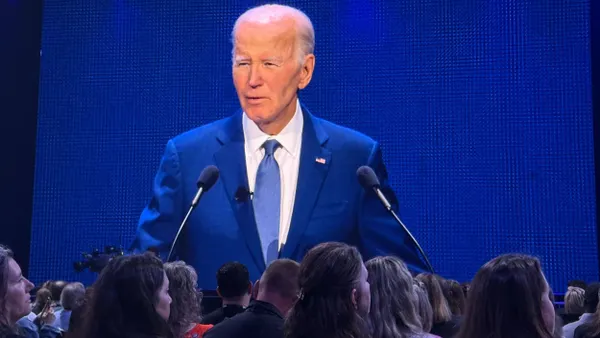Dive Brief:
- Events at multiple companies have shown that most workers perform quantitatively better when they have actual managers, thanks to examples provided by Google and Zappos, Gallup reports.
- Data from Gallup notes that at least 70% of the variance in employee engagement scores are tied to managers. That's because workers often feel more engaged when they have a leader who helps them build on their strengths and who lay out clear expectations for their workers.
- Experts have been watching Zappos as it experiments with "holacracy," a work management style that creates an entirely flat organization with no bosses. The company has been "hemorrhaging" employees since its implementation.
Dive Insight:
Gallup notes that Google also once attempted a no-bosses style of management – and returned to having managers six weeks after the attempt began. The company cited "people issues" that couldn't be handled effectively without managers, and that workers with good managers had lower turnover and better performance.
If anything, holacracy has put the role of the manager into stark perspective. Gallup's data shows that employees need a manager who will listen to them regularly about responsibilities, progress and problems, calling this "vital" to performance. Not having a defined person for such a task may be why Google turned away from the "no-bosses" approach so quickly – and may explain why Zappos is still seeing some struggles. Time will tell if holacracy eventually settles in comfortably.













